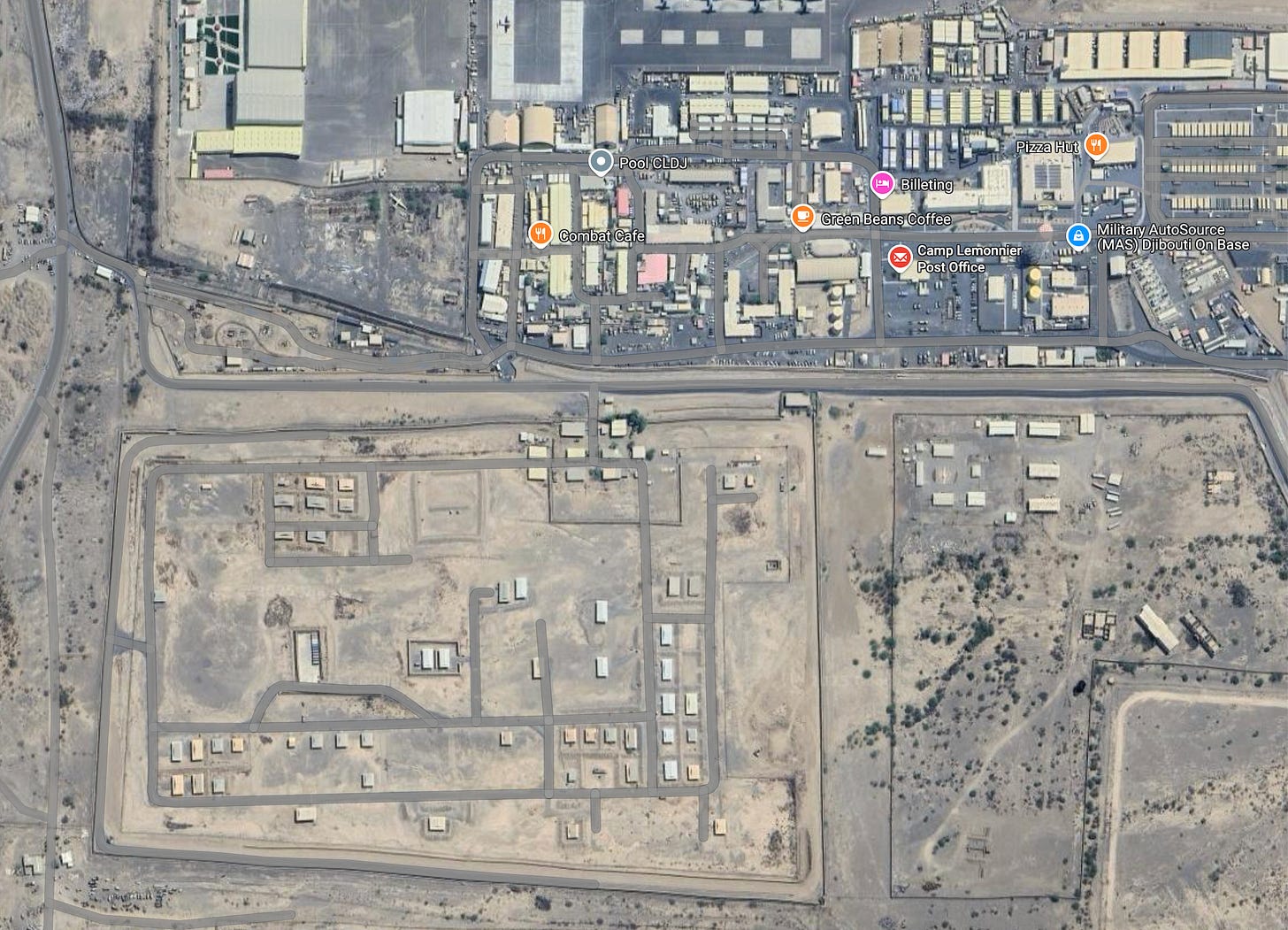Shackled migrants held in secrecy at Camp Lemonnier while Navy Police and DHS watch around the clock
Migrants imprisoned at U.S. military base in Africa have no privacy and no end in sight
The largest military installation in Africa—Camp Lemonnier in Djibouti—has quietly become a holding site for eight migrants, who landed there on May 21st due to a stalled and illegal deportation attempt to Sudan, a country that all but one of them have never even been to.
Most US personnel on the Naval base remain largely unaware of the detainees’ presence but those stationed on the western edge of camp have noticed unusual restrictions, limited access, and increased security since May 21st when these migrants first arrived.
One resident complained about parking being “a hassle” for the past few weeks due to much of the western side of the Naval base being restricted, outside of a certain number of vehicles.
The eight individuals are only officially being referred to as “detainees,” rather than deportees. They’re being held in rooms on the base that had been used as temporary military housing up until their arrival on May 21st. While the buildings are air conditioned, the prisoners must walk in ankle shackles to a separate building any time they need to use the bathroom.
A small section of the western camp is now completely blocked off with no vehicles permitted (aside from DHS and Navy Police) and very minimal foot traffic is permitted in that area. The interaction protocols for these detainees are that they are off limits to everyone but DHS, who guard them 24/7, inside their rooms. Navy Police maintain an external watch from a nearby truck, also around the clock.

According to a resident on the base, those who have noticed the detainees “have kept it relatively hush hush” but noted that DHS would have no reason to be on a military installation unless detainees were involved. Those living in the same camp have been able to observe the situation firsthand.
CNN first reported that the US military in Djibouti expressed “significant concerns” with Washington over the impact of these detainees on military relations, if they remain on base. Nevertheless, the eight individuals remain there indefinitely. A source on the ground said DHS and the Military are waiting for a court to tell them what to do.
In the first week, there were a number of detainees and DHS personnel who came down with a sickness that warranted medical intervention from military personnel on the base. On the night of May 24th, a Signal group chat message was sent asking if any medical personnel were available, while apologizing for it being so late. The sender explained that it was the second DHS officer to get sick while watching the detainees.
The close quarters and conditions—poor airflow, constant exposure, and the ongoing spread of COVID—make illness unsurprising. But the only explanation provided was that the agent was “feeling ill” and was the second person to get sick while watching the detainees.
The detainees remain confined indefinitely, shackled and under constant surveillance, with no legal clarity and zero privacy as DHS officers stay inside the same room with them, around the clock—a situation that violates their human rights.




